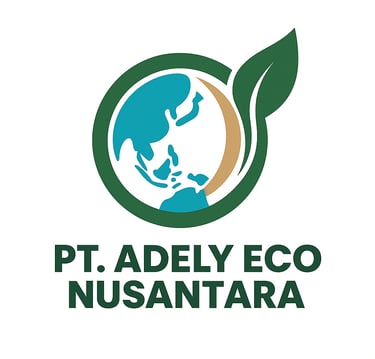Add your promotional text...
“From Nusantara to the World: The Sustainability Code Buyers Follow”
Discover how global buyers demand sustainable practices. Learn why Indonesian products like moringa & cocopeat align with the world’s green code.
Dewi Puspitasari
2 min read
Introduction
Global trade isn’t just about price and quality anymore. Today, buyers across Europe and the US follow a strict “sustainability code” when choosing suppliers. This code isn’t written in law books—it’s written in the values of conscious consumers, eco-minded retailers, and future-focused brands.
From the heart of Nusantara (Indonesia), products like moringa, cocopeat, and coconut derivatives are emerging as answers to this demand. But what exactly is the sustainability code, and how can exporters align with it?
1. The Buyer’s Sustainability Code Explained
International buyers increasingly evaluate suppliers through three green lenses:
Traceability – Can the source of raw materials be tracked to farms and communities?
Certifications & Documentation – From organic, fair trade, to phytosanitary documents, proof matters.
Impact Reporting – How does the product reduce carbon footprints, support farmers, and protect biodiversity?
💡 For exporters in Indonesia, this means sustainability is no longer a “bonus”—it’s a ticket to entry.
Indonesia, with its rich biodiversity, holds a unique advantage:
Moringa leaves: celebrated as a “miracle tree” for nutrition and natural wellness.
Cocopeat & cocofiber: eco-friendly alternatives for horticulture, replacing peat moss and plastic-based substrates.
Coconut derivatives: sustainable replacements in food, beauty, and packaging industries.
These products naturally align with global sustainability narratives—the key is telling the story right to buyers.
Suppliers who fail to address sustainability face:
Rejection during compliance checks.
Losing contracts to more eco-transparent competitors.
Limited access to premium markets (EU & US).
On the other hand, early adopters of the sustainability code are securing loyal, long-term partnerships.
2. Why Indonesia is in the Spotlight
3. The Risk of Ignoring the Code
4. From Nusantara to the World
At Adely Eco Nusantara, we believe that exporting is not just about trade—it’s about sharing a story of nature, responsibility, and future generations.
Every moringa leaf dried, every coconut husk processed, carries a promise:
✅ Respect for the earth.
✅ Empowerment for local farmers.
✅ Value for global buyers seeking green supply chains.
The world is shifting, and buyers are making choices with the planet in mind.
For exporters, the question isn’t “Should we go sustainable?” but “How fast can we adapt?”
Ready to align your sourcing with Indonesia’s sustainable exports?




